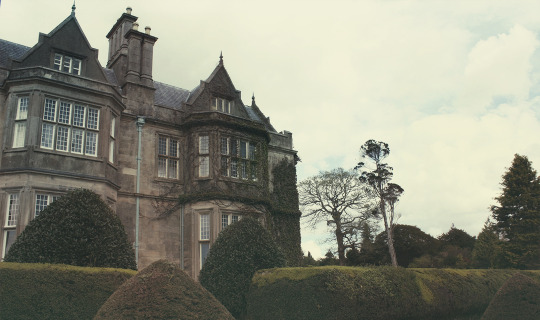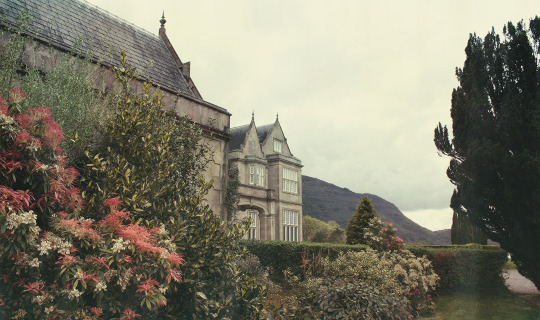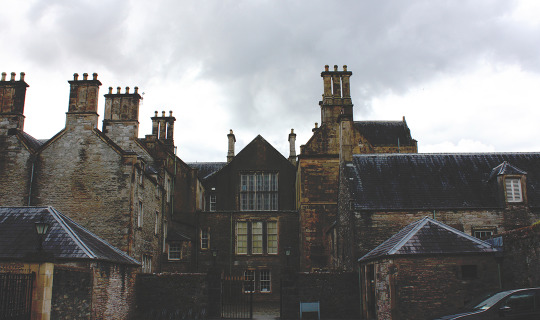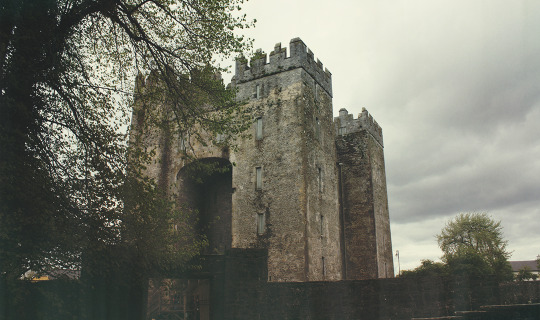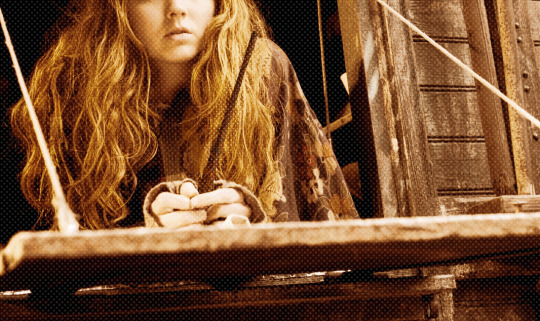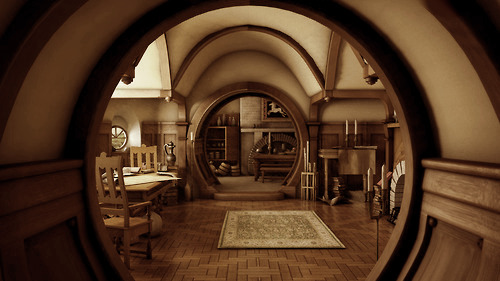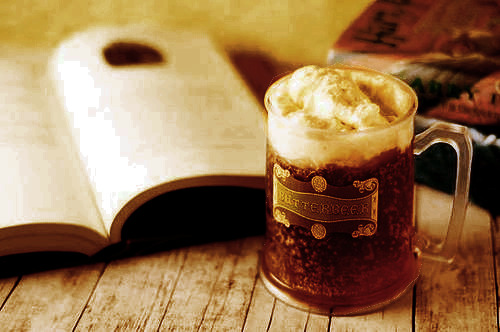Don't wanna be here? Send us removal request.
Note
Hello! I'm a self taught artist who wants to get better at shading/lighting and backgrounds especially. But whenever I try to do a background study, I can't break it down and it ends up looking terrible. Do you know of anything that would help?

Hi! I would like to talk a little bit of the thought process behind photo study and the importance of simplicity.

It is really important to break down an image to chunks of value rather than seeing the detail first, which can lead to over-complicated mush of colors with no constructed value.
These are some of the artists that inspired me to get used to breaking down images in the most simplest way possible:

Notice how super simple and straight-on-point his thumbs are? And this is how his colorscript for Moana looks like:


Zero detail. Yet you have all the information you need!
I personally think these thumb studies are super important to train your eyes to break down an image in values and colors and therefore be able to organize and design your painting better.
21K notes
·
View notes
Photo

(via Bought My Grandma An Ipad. She's 84 And Never Had A Tablet, And Wanted It For Art I Bought Artrage For Her And Left Her Alone With Her New Toy For 30 Minutes. This Is What I Came Back To)
3 notes
·
View notes
Photo
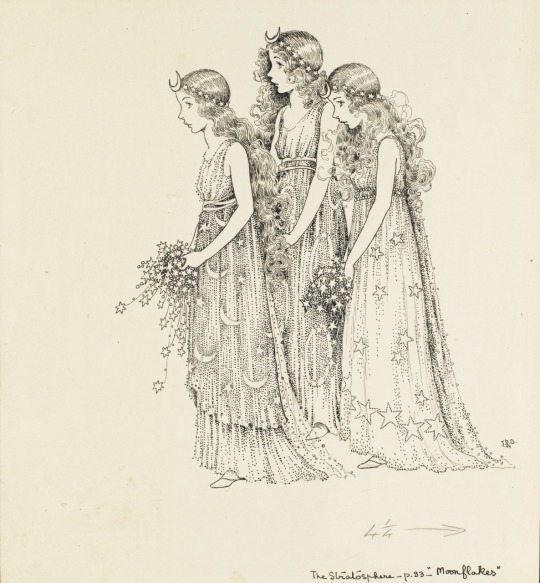
Illustration for “The Stratosphere” from Chimney Town. Published 1934. Illustrated by Ida Rentoul Outhwaite.(1888-1960).
“ The pretty moon-maidens ”
28K notes
·
View notes
Photo

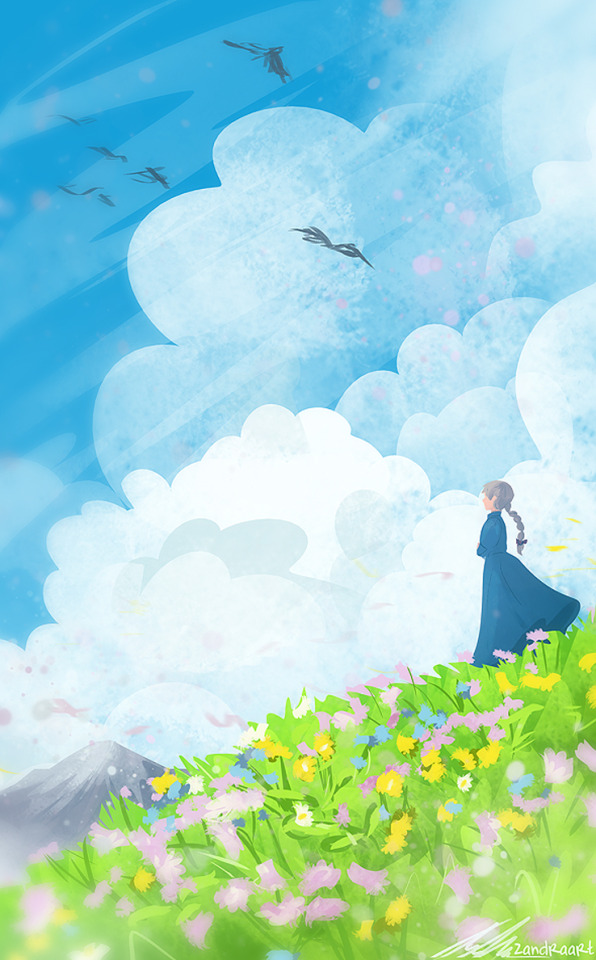



Alexandra kern - http://portfolios.collegeforcreativestudies.edu/kernalexandra - https://www.behance.net/kernalexandra - https://society6.com/zandraart - http://zandraart.tumblr.com - https://www.facebook.com/pages/ZandraArt/603985163053480 - http://www.redbubble.com/people/zandraart/shop - https://twitter.com/zandraartt - https://www.instagram.com/zandraart - http://zandraart.deviantart.com - https://www.facebook.com/pages/ZandraArt/603985163053480
3K notes
·
View notes
Photo

The Blessed Damozel (detail) Dante Gabriel Rossetti.
2K notes
·
View notes
Text
The Traits of the Four Houses (by request)
This analysis is based in the answers assigned to each House by the Sorting quiz.
Hufflepuff
Hufflepuffs are defined by their love of family, comfort, and living things first and foremost. Anything involving animals or plants is going to appeal to them: Care of Magical Creatures and Herbology are subjects beloved by Hufflepuffs. They also care deeply for people and enjoy the company of others; being alone or feeling unloved are things Puffs dislike intensely. Ultimately, Hufflepuffs are interested in helping both people and animals, but are much less confrontational or daring than Gryffindors. They’re the least likely to care about individual achievement or House points, and most likely to focus on their relationships to others rather than things they personally have done.
Hufflepuff is a House of teamwork; it’s very group-oriented. Puffs care deeply about their family first and foremost, and want to be loved/think of loved ones rather than any sort of greater scheme or accomplishment. They’re creatures of comfort, and go for something that’s familiar and home-y rather than something strange or mysterious.
Hufflepuffs are also deeply practical, and value something that’s known over something that’s unknown; they prefer what is to what's possible. At the extreme, this can mean that something that purports to be extraordinary may be seen with suspicion - hence, perhaps, Zacharias Smith’s suspicions of Harry in OotP. (Or Puffs may simply not be interested in something that’s unknown; they’re much more likely to value something that’s a known quantity. “A bird in the hand is worth two in the bush” is a pretty solid ‘Puff metaphor.)
Puffs prefer to avoid danger; they’re not risk-takers by nature, and prefer to avoid physical discomfort. Like Ravenclaw, they prefer to avoid confrontation, though not to the extent that Ravenclaw does. Hufflepuff practicality also means that they prefer to learn practical skills over something that might be cool but less frequently used. They’re the sort who’d rather do something that’s safe and reliable than flashy but risky - which is one of the major dividing lines between Hufflepuff and Gryffindor.
Another is that the Hufflepuff’s sense of justice has limits: if doing something just is going to cause discord within the group, Hufflepuffs are the most likely to simply avoid conflict, even if it means a miscarriage of justice. (They’ll feel deeply unhappy and conflicted about it, but ultimately, they don’t want to betray the trust of a friend or run the risk of being disliked. This is a bit of a division between Puffs: there are Puffs who do put honesty first, but JKR’s quiz favors the friendship-over-fairness interpretation.)
Hufflepuffs, essentially, are hobbits. Hunger and foodstuffs are associated with them, as are growing things, and a love of home, peace, and family. Earth is their element, and earth-like qualities (strength, for example) tend to be associated with them (although these answers tend to be disfavored overall.) Warm sunlight and fresh grass are very Hufflepuff in nature: note that the sunlight is warm rather than scorching, a mark of comfort rather than fire, something that nurtures the growing grass.
Hufflepuffs value tradition and the past (though not as much as Slytherin.) As the Sorting Hat says, they are loyal, just, and true; tolerant; and very much a humble, decent sort of House. As I’ve said before, Hufflepuff is best defined as the House of general human decency and kindness: Puffs are thoughtful, kind, and caring.
Ravenclaw
Ravenclaws are defined by curiosity and the love of learning, first and foremost. A Ravenclaw will always seek knowledge; they want to know the why of everything. They love learning, and will want to seek as much knowledge as possible, whenever possible, by whatever means they can - even if that may involve some risk, which 'Claws are normally quite averse to. The serpent may claim to be wisest of animals, but wisdom is Ravenclaw’s purview - Slytherins care more about using knowledge to achieve greatness, where Ravenclaws revel in pure knowledge for knowledge’s sake. Ravenclaws are readers; they love books, which they prize greatly, and have an insatiable hunger for knowledge. They like elegance, but aren’t as haughty as the Slytherins can seem; if Ravenclaws become elitist, it’s because they think they’ve sensed stupidity or close-mindedness, not because someone isn’t a member of their group.
The unknown attracts Ravenclaws, although they can be more danger-averse than Slytherins, who value mystery even when they sense danger. Unlike Slytherins, Ravenclaws tend to focus on the future over the past: the possibilities excite a Ravenclaw, and they tend to be deeply interested in the what-ifs of a situation. The past is only useful to the extent that people can learn from it: ancient things may excite them, but only if they possess something interesting. New discoveries excite them greatly, and they care much more about future possible discoveries than relics of the past (particularly if they think a relic is boring - again, if they think that ancient knowledge could contain new insights, they’re much more likely to place great value on it.) Ravenclaws do care for humanity, but are generally much more cerebral or introverted than Gryffs and Puffs - Ravenclaws have no problems with being by themselves, because they can always occupy themselves with books or theories or thoughts, but when they want to talk, they’ll be upset if no one listens. As much as they try to not care about what others think, they are going to hate it if people ridicule them for their beliefs, if only because they’ve thought about them so much.
When forced to focus on studying something (if you insist they can’t study everything), they may insist on tackling a difficult subject that’s both useful and rewarding. When studying a creature, they want it to be sentient - they want to learn directly from something with a reputation for wisdom or special knowledge, or something that dances along the borders of the unknown.
Ravenclaws are the most conflict-averse of all the Houses: they tend to avoid conflict whenever possible, seeking creative solutions to avoid a fight. They would rather rely on their wits than their wands, and unlike Gryffindors, are much more likely to stop and review a situation before charging forward. They also have a strong sense of fairness in academic situations, and want recognition for themselves.
Ravenclaws are also the most individualistic of all the Houses, and the most open-minded. Hufflepuff is known for its tolerance, but Ravenclaw may actually be more tolerant of people with wild ideas: when Puff practicality conflicts with high-flying Ravenclaw ideas, the Puffs may draw the line. However, where Puffs tolerate everybody, Ravenclaws have no time for stupidity or ignorance, particularly the latter. Ravenclaws despise ignorance. They’re happy to help a person learn - but they have no patience with the close-minded.
Ravenclaw is associated with the element of air, which has historically been associated with thought and intellect. Ravenclaw is the House of wit, wisdom, and learning - not necessarily school-smarts, but a passion for knowledge of some kind, an open mind, and a desire to achieve. Ravenclaws are also extremely individualistic: trying to group Ravenclaws can sometimes be like herding cats (or caging eagles in flight.) On the Sorting Hat, Ravenclaws are least-likely to do what’s expected of them in many cases: despite JKR’s insistence that Ravenclaws want to be imitated, actual Ravenclaws have no interest in it - they’re too individualistic and don’t care about what others think or are doing. Ravenclaws are also most likely to value the stars, associating them with the unknown and exploration - another area where JKR’s symbolism doesn’t match those of the actual Ravenclaws taking the quiz. Where JKR thinks Ravenclaws should fear falling from great heights, they actually fear being caged in the dark. (On the whole, their numbers may be fewest because they tend to have overlap with answers that JKR has given to Gryffindor in particular - statue, eye at keyhole, stars.) In other words, 'Claws may be the strangest House, even to the creator who’s trying to define them.
Ravenclaws are free-thinkers, likely to analyze everything: they think about everything, form opinions about it, and are the most open-minded (out-there) of all the Houses. Creativity and an open mind, as much as pure intelligence, defines Ravenclaw House: 'Claws value their own inner world, and have too much of an imagination to ever be sad or bored just because they’re alone.
Gryffindor
Gryffindors are another individualistic House, but one that’s primarily defined by its daring, desire for fame, and great exploits. (Some parts of the quiz are less useful for defining Gryffindor because of the quiz’s overall bias towards this House: in many cases, the answers that give points to Gryffindor are chosen by everyone and therefore not really useful for defining what a Gryffindor is. Per JKR, Gryffs have more of an interest in ghosts and cure>book>records - but the numbers aren’t working out that way. Per JKR, Gryffs want to be trusted and praised - but so do Ravenclaws, and in greater numbers than the Gryffs!)
But what the quiz does say about Gryffindor: they’re fiery, and defined by a desire for glory. They want to be remembered for great adventures, and are the most likely to leap before they look. They’re the first to charge into a situation, the first to defend their friends. They prefer to deal with a situation directly, even if it means a fight - and they want that fight to be a fair one. They care enough about justice to get into a fight, even if that fight involves an argument with a friend.
Gryffs are deeply, deeply defined by forests, and by the element of fire. Fire here is actual fire: not Hufflepuff’s nurturing sunlight, but an absolutely scorching-hot flame. Fire is passion, and Gryffindors are passionate about their beliefs, and standing up for what they believe in (and, more pointedly, who they believe in: Gryffindor is an individualistic House, but it cares deeply about people - it’s not cerebral in the way of Ravenclaw or Slytherin.) A Gryffindor’s first impulse is always to draw their wand and act.
Gryffindors also like being around people. They’re not group-focused - it’s individual glory they’re seeking after all - but they like being around friends, and hate being bored. (They may feel the need to make a little mischief to keep from being bored.) A Gryffindor never has to worry about being overlooked - they need to keep friends around them and are a more extroverted House on the whole, but they’re generally too active to be ignored. Physical discomfort doesn’t bother them at all.
Gryffindors are fully willing to bluff, but never to cheat or threaten (and the Pottermore quiz tends to downplay any and all of the malicious/thoughtless actions we’ve seen from Gryffs, like James’s bullying, Sirius’s prank, the twins’ locking Montague in the Vanishing Cabinet, Hermione hexing the DA parchment, Harry’s interest in an unknown jinx - Gryffs may be interested in pranks and hexing Slytherins in the books, but the quiz completely disregards this aspect of their collective personality - per Pottermore, Slytherins are the only ones ever associated with jinxing people. Not a decision I agree with, but this analysis is based on what the quiz can tell us about the Houses.)
Forests, in the Pottermore quiz, represent both individuality and also danger, to a certain extent: dangerous things are found in the Forbidden Forest, after all, and dangerous things attract Gryffindors most of all. (Not necessarily Dark things - not all dangerous things are Dark. But Gryffindors will go for things that are associated with the forest and have a reputation for danger. They’re also most strongly associated with ghosts, although that’s not particularly an association I agree with or have a good way of working into this analysis.) But forests and fire are Gryffindor’s defining elements on this quiz, and forests + fire + action = a very Gryffindor individual.
Gryffs do care about people, and seek external validation from others: they’re very interested in proving themselves. A Gryffindor is going to be very interested in being a hero; as Hermione has said, they may have a “saving-people-thing.” They don’t care about knowledge as much as Ravenclaws, and certainly aren’t interested in knowledge for knowledge’s sake: if they want to save something, it’s going to be something that enables them to help others, and if they want to learn something, it’s going to be something that allows them to pursue adventures - ways to get about undetected, for example. They do dislike things that they consider boring and/or useless, and would prefer to seek the unknown rather than treading the usual paths - but less out of a desire for intellectual discovery and much more because of a thirst for adventure. Adventure, and more importantly action, are the traits of a Gryffindor: Gryffs want to be heroes. A willingness to confront the darkness, to fight for the underdog, to explore and defend: this is Gryffindor House.
Slytherin
Slytherin, per the quiz, gets a little bit shafted: they have the most answers that are terrible (not even people who are otherwise very, very Slytherin will give them), and they tend to be associated with very negative things. Even with the rehabilitation Pottermore’s Welcome Letter tries to give them, the fact remains that JKR is still not very fond of this House, and it shows in the quiz. Hufflepuff may have some singularly horrible answers (trolls, superstrength, draw lots, trumpet) - but it tends to make up for it with other, good answers on the same question (werewolves, talk to animals) or by not having a lot of weight in those
In fact, Slytherin relies most heavily of any of the Houses on its element to get new students. Slytherin is hugely associated with the element of water, and is the House where an affinity for the element - and only an affinity for that element - is most likely to Sort a person there. (Sea or luminous pool/merpeople/river goes a LONG way towards Slytherin, particularly with the weight on merpeople.) Water is a HUGE marker for Slytherin; I’ve even heard people say that the lantern-lit alley path feels more “watery” than the other options. (It certainly resembles the Slyth common room most, with the dark feel and the lanterns on the bedposts.) Water is also associated with mystery, another huge Slytherin trait: something that’s dark and mysterious appeals to them greatly, even if it seems dangerous. They’ll go for experiences that Ravenclaws are too afraid to touch.
The river in Pottermore represents unity, and Slytherin is a group-oriented House. Like Gryffindor, Slytherins are seeking individual greatness - but Slytherins look out for their own group and see themselves as much more unified than Ravenclaws or Gryffindors. (Remember, per the welcome letter, Slytherins are brothers; they’re focused on their own in-group, although that group tends to be much more cliqueish and exclusive than Hufflepuff’s group.) However, a Slytherin’s loyalty to the group only extends so far: they won’t cover for someone who’s overshadowing them academically, particularly when they know that’s been achieved through foul play. (This is actually the question that Slyths and Puffs tend to split on: a large percentage of Slytherins do believe that group loyalty extends to covering up academic dishonesty, but JKR disagrees, per the quiz.)
Slytherins are strongly, strongly associated with the Dark Arts in the Pottermore quiz, where no other House is: anything involving a hex or a jinx is a solely Slytherin trait, per Pottermore. (Actual Slytherins, again, tend not to agree.) Per JKR, Slytherins fear public humiliation more than anything: a loss of dignity is worse than death. (In actuality, Slytherins fear heights the most. A fear of falling from great heights seems apt in the sense that Slytherins want to be at the top and fear falling from greatness once it’s been attained, but most people aren’t actually looking at this question in a symbolic way anyway.)
Slytherins care more about their reputation in the here and now; it matters even more than their achievements. It’s better to be powerful in life than renowned in death, because you can reap the benefits while alive. They tend to have the most diverse problems: snakes are cold-blooded, so cold bothers them, but in a more general sense the worst thing that can happen to them is being ignored. After all, you can’t be great if no one is willing to pay attention to you! Boredom is also a large issue for them; they don’t get lost as easily in their heads as Ravenclaws do, and they’re only interested in learning for the sake of applied knowledge. If it’s not useful, Slytherins don’t want to know it.
Slytherins are more interventionist and more risk-oriented than Hufflepuffs or Ravenclaws. They won’t fall back or be cautious: they want their wand out, ready to fight, and they’re not going to cede ground to anyone. On the other hand, they also consider Gryffindors to be needless risk-takers, perhaps a little too overt and blunt, and so they’re not going to go looking for trouble or charging directly into the fray. (Again, this is what they’re supposed to do; in practice, nobody picks the Slytherin option, which is pretty much a recurring theme of most of the Q5s.)
Slytherins are much more willing to take risks than Hufflepuffs or Ravenclaws - but where Gryffindors take risks for the greater good, or to be heroes, Slytherins are much more likely to be doing it to benefit themselves. (For example, Slytherins are more likely to want superpowers that may have great downsides, to learn a method of travel that is subtle and quiet but has the greatest risk of a life-threatening accident, or to take a mysterious potion with effects that most people hate - but only if they believe that they can achieve great personal gain by doing so.) The creatures they prefer to study are associated with one of three things: water, Darkness, or cunning.
Slytherins are cunning and confrontational - and lack a sense of fair play. They’ll cheat in a fight if they can get away with it, but woe betide anyone stupid enough to get caught; they’ll threaten a Muggle if they think they can. (Again, this is the quiz. Is it a very fair representation of Slytherin House? That’s debatable - but this quiz doesn’t portray a very flattering picture of Slytherin at a lot of points.) Slytherins are the only House that doesn’t list trusted as their #1 value (in practice, it’s their #2, with praised as their #1.) However, the values that JKR associates them with are much more explicitly negative: per the quiz, an ideal Slytherin would desire to be feared or envied, qualities with the most outright negative connotations. (Envy, after all, is one of the Seven Deadly Sins, and fear is obviously negative.)
Despite being a group-oriented House, Slytherins are cerebral - they don’t care so much for people, particularly people they don’t know. They have no patience for incompetence in others. They enjoy elegance and refinement, along with mystery. Where Ravenclaws want to explore mysteries and shed light on them, Slytherins want to be the mystery: great and prominent, but distant from the masses. Darkness, the flip side of the coin, the dark side of the moon: all of these are very essentially Slytherin.
Slytherins also are the most focused on the past and tradition. They value old relics, particularly those of their most esteemed alumnus, Merlin. (Again, this is a bit unfair while people are taking the quiz: after all, they don’t know that Merlin was a Slytherin, and could simply be interested in Hogwarts history. However, Merlin does represent a link to the past and tradition, and Slytherin is about both of those things - but this means that Slytherin ends up with some disgruntled people who were just interested in history.) They would prefer to preserve old things rather than the new; they look to the past rather than to the future.
Again, this is Slytherin House per the Pottermore Sorting Hat quiz. Personally, I could do a writeup on what Slytherin should be about rather than what it is (and ways in which the quiz could’ve been improved), but Anon asked for the traits of the Houses according to the Pottermore Sorting Hat. Slytherin, unfortunately, tends to get the worst write-up, and tends to have the qualities that nobody at all picks. (With Ravenclaw, imitated is always #4/6 for traits, but about 20% of Hufflepuffs pick it - so somebody is picking it, but not Ravenclaws. With answers like feared or silly voice, nobody is picking those!)
A few concrete examples/notes under the cut
Afficher davantage
9K notes
·
View notes
Photo




Hogwarts Quidditch designs. These were fun! Don’t know what to do with them first.
28K notes
·
View notes
Text
I love that Pokemon Go and The Cursed Child have turned 2016 into the throwback nerd party
171 notes
·
View notes
Photo

Lady Marjorie Manners (1883–1946), Later Marchioness of Anglesey, Aged 17
James Jebusa Shannon (1862–1923)
National Trust, Plas Newydd
3K notes
·
View notes
Photo
Cute cute

I am the queen of wasting her time doing things she shouldn’t be doing like kiki gesture studies……….
21K notes
·
View notes
Photo

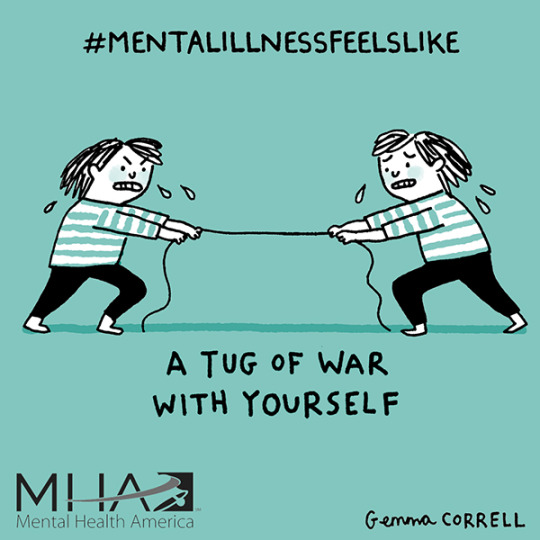
I’m working with Mental Health America this month to ilustrate #mentalillnessfeelslike submissions for Mental Health Awareness Month. You can submit your own by messaging me (I’ve temporarily turned on anonymous messages) or use the hashtag #mentalillnessfeelslike on twitter.
53K notes
·
View notes
Photo
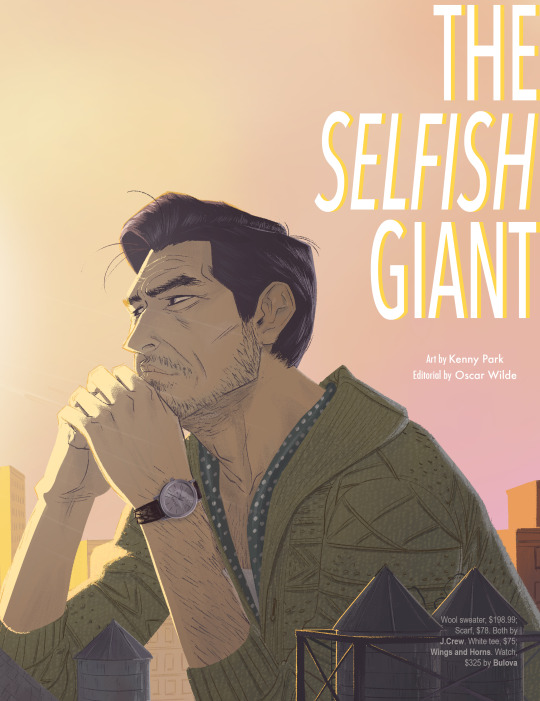
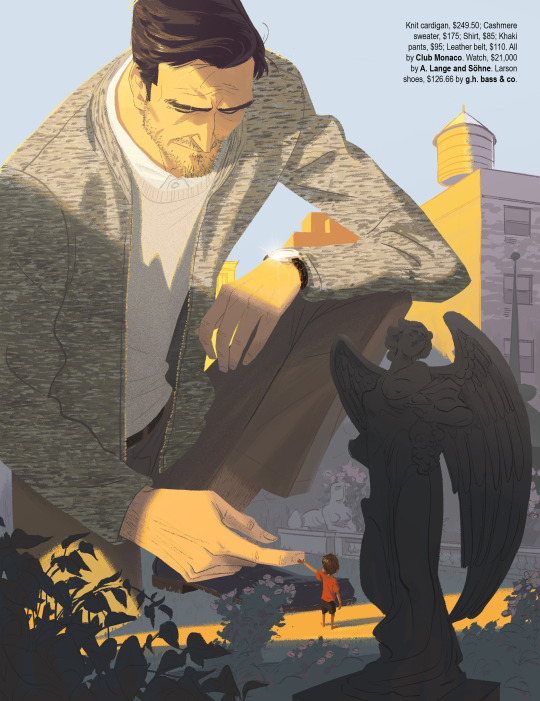

The Selfish Giant
Conceived of as a fashion spread for an imaginary men’s fashion magazine, in an imaginary world where fashion magazines still use illustrations to showcase clothing.
More to come!
K
5K notes
·
View notes
